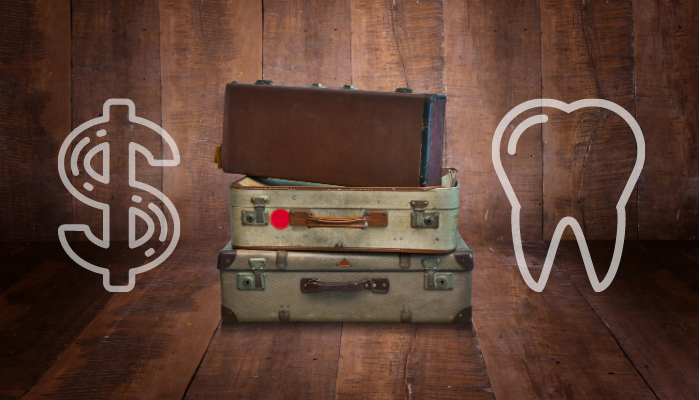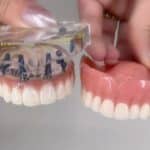Dental tourism is becoming a popular alternative to U.S. dental procedures. But is getting dental implants abroad the ideal solution for you? This article will help you explore the idea of booking a flight to get new teeth from somewhere far away.
The Number One Reason People Travel Abroad for Dental Implants
The number one reason people decide to travel abroad for dental implants is because of the lower initial cost.
Dental tourism’s most attractive feature is its price tag. Currency exchange rates, as well as lower overhead costs, allow for implant facilities in some countries to offer procedure fees that are more attractive to U.S. patients. Full mouth dental implant procedures can sometimes be as low as USD $12,000 in Thailand, $10,000 in Costa Rica, $8,000 in Mexico, and even a mere $6,000 in India.
These numbers can be quite appealing for those on a budget. Unfortunately, the initial procedure cost is often the only legitimate reason to travel abroad for dental implants. And while some patients have had great experiences with their dental tourism, many have ended up with complications and fees totaling more than a procedure would have cost them in the US.
Unfortunately, traveling abroad for dental work too often leads to higher overall costs as issues with bargain-buy services become more apparent, and more uncomfortable over time.
The Risks of Traveling out of the Country for Dental Implants
- Lack of Liability: Surgeons outside the U.S. aren’t legally accountable to U.S. medical malpractice laws. If you believe your out-of-country surgeon has acted irresponsibly, you may find yourself with no recourse to take legal action.
- Lack of Regulation: In the U.S., OSHA oversees sterilization standards and the FDA regulates material quality. Laws and standards of these kind often exist in other countries, but some developing countries still lack enforcement of these laws. In order to cater to patients seeking cheaper procedures, facilities may source their materials from manufacturers with less regulation. And without strict enforcement of sterilization standards, facilities can find themselves with less incentive to abide by best practices. You may be at greater risk of disease, infection, or implant failure if treated in a facility lacking in regulation.
- Lack of Follow-Up Care: Follow-up care is required within the first 6 months of implant placement. When teeth are extracted, there will always be a shift in the shape of the gumline. This means that prosthetic teeth placed on the day of surgery will almost never have a perfect fit with the gums after the healing period is over. Not having access to your oral surgeon throughout the healing period can put you in a tough situation.
- Complications: Due to liability, many U.S. oral surgeons won’t treat patients who had implants placed by other surgeons. If you experience complications such as infection, implant failure or prosthetic fractures, you may need to fly back to see the surgeon who placed your implants.
Not every implant provider offers the same procedure and product. When a medical provider’s main selling point is their low price, patients should exercise extreme caution and diligence in researching the provider. We recommend getting clear answers to the following questions before taking next steps with an out-of-country implant facility.
Questions to Ask Before You Travel
- Is the doctor a qualified oral surgeon? General Dentist?
- Is the given price for single implants, full arch, or full mouth?
- Is this price all-inclusive (Consultation, X-ray, surgery, anesthesia, implants, abutments, prosthetics, follow-up) or only for the implants?
- Is the implant cost a blanket fee or charged per implant?
- Does the price include a warranty?
- Does the price include maintenance?
- Which company manufactures the implants?
- What is the material of the prosthetic?
- Where is the prosthetic made?
- How long will it be before I can return to my country?
These questions will help you determine if the cheaper price advertised by the facility can truly provide you with the same level of care and long-term results as a procedure performed in your home country. You may find that the level of care and regulation differs from what you would receive nearby where you live. If not, we wish you all the best in your dental journey!









